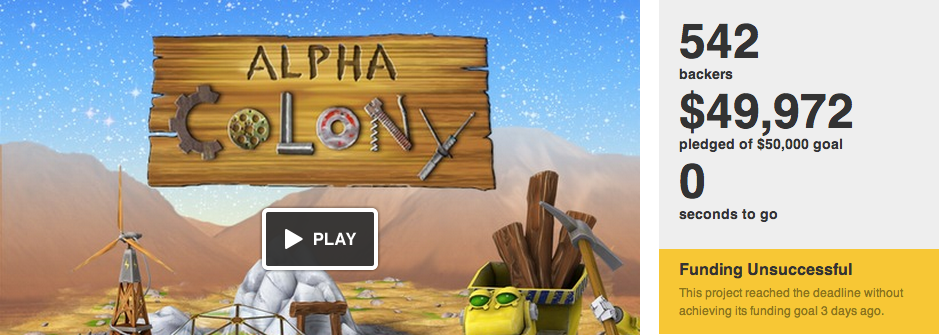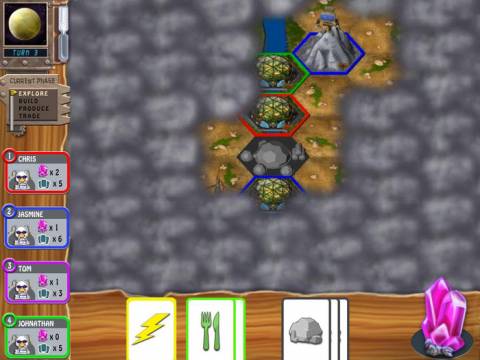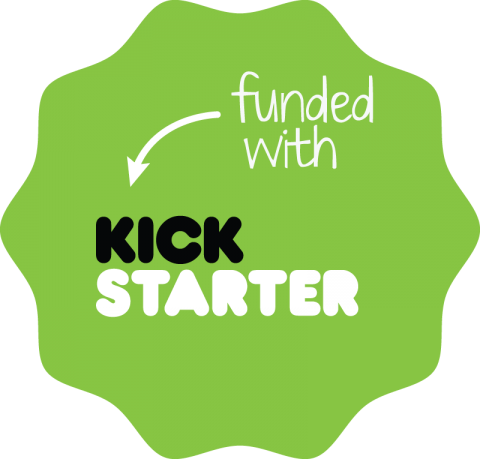
When Alpha Colony’s Kickstarter ended on December 2, it was just $28 short of its $50,000 goal. Kickstarter’s terms are clear, however, and if you don’t reach the goal, all of the money disappears.

It’s hard not to feel bad for would-be Alpha Colony developer DreamQuest Games, and wonder why the company didn’t find someone, anyone to kick in the last $28. The answer is hardly that simple. The conclusion of Alpha Colony’s second--yes, second--attempt at Kickstarting development raises serious questions about the psychology behind Kickstarter, and the policies that govern it.
“It’s a little frustrating,” said DreamQuest founder Christopher Williamson to me this week, one day after his project fell tragically short. “It’s quite ironic to get a Kotaku article now. I’m kind of like ‘It would have been really helpful to get that article a week or two ago.’ [laughs] The publicity is appreciated, but, really, too late to be of any real use. A little bummed about that.”
Even though it’s just $28 shy of what DreamQuest asked for, Kickstarter’s current policy has no flexibility for edge cases like Alpha Colony. The game didn’t meet its projected funding goal, and so DreamQuest gets none of it.
“Usually, the all-or-nothing funding model (ie: projects must earn all the funding they need or they will not gain access to any of it) works to prevent this from happening, but as it is, there is no way to reopen the project for pledges,” the company said in a statement.
Kickstarter funding tends to spike at the beginning, with excitement and dreaming at its absolute peak. This occurs again at the very end, during the dramatic race to the finish to hit the original goal or a new stretch one. Based on the day-one funding, though, it’s usually pretty easy to see how the project will match, exceed, or never touch its goal. Look at Double Fine Adventure’s funding arc, which reflects this reliable pattern on a much larger scale.

When Camoflaj sought $500,000 for its ambitious iOS project, Republique, the first day funding was poor, and the graph suggested Republique was headed for eventual disaster. An intense rallying campaign, padded by key reveals that included key Metal Gear voice actors contributing to the project, eventually turned the tide three-fourths through the campaign--much earlier than when the spike usually occurs for projects. It ended up netting an extra $55,512.

Now, take Alpha Colony’s first, failed Kickstarter, which included the M.U.L.E. license and, just liked Republique, asked for $500,000. DreamQuest managed to raise $101,472, but it was very hard to imagine it would ever hit $500,000. Williamson recognized Alpha Colony wouldn’t make it, and pulled the plug just hours before it failed.

Alpha Colony’s second Kickstarter project no longer had the M.U.L.E. license attached (instead, it was simply inspired by M.U.L.E.) and only asked for $50,000. Given it previously raised more than $100,000, this made some sense. A lack of attention the second time around, however, and mixed reaction by backers to a playable prototype, meant Alpha Colony’s second round struggled, and it wasn’t clear how it would play out.
The “why wouldn’t the developer or someone just kick in another $28?” question is all over the comments section of the now-failed Kickstarter project, and became a prevailing query on Twitter.
“I know people were posting [about that],” said Williamson. “It’s not like we were just, you know, all high and partying or something. [laughs] We were there in the final moments of the Kickstarter, watching everything happen and play out live. I had a friend who put in a last-minute pledge on our behalf to help us push over, and we just had too many people changing their bids.”

Kickstarter allows users to change the size of their pledges prior to a project’s deadline. Here's how it's outlined in the terms of service:
"Backers may increase, decrease, or cancel their pledge at any time during the fundraising campaign, except that they may not cancel or reduce their pledge if the campaign is in its final 24 hours and the cancellation or reduction would drop the campaign below its goal."
Often, users will increase their pledge to become part of another bracket of backer rewards, but Alpha Colony experienced potential players realizing the game might be a losing horse, and just pulled out. The project had not passed its goal, so it was within Kickstarter guidelines. Backers don’t lose any money for a project that fails to meet its funding goal, but this meant Williamson’s last minute plans to push the project over were for naught, due to last second shuffles from anxious backers.
When news of Alpha Colony’s Kickstarter woes spread on Twitter, several people suggested that Kickstarter could use an overtime policy for these edge cases. What if, provided a project was within a certain percentage of its funding goal within the final minutes, it received an extra 30 minutes or so for it to play out?
Williamson witnessed how this could have been helpful first-hand, with users trying to increase their pledge or contribute for the first time, and simply getting caught up in the process as time ran out. Such a policy change would include strict guidelines (an extra 30 minutes if a project’s within 1% in the last hour?), but it seems reasonable.
There has been no conversation between Kickstarter and Williamson about a change, and he has accepted his fate.
“I understand their policies are what they are,” he said. “I don’t really blame them for that. They’re doing their job, and we’re doing ours.”
My conversation with Williamson did reveal something potentially troubling.
Given Alpha Colony previously raised more than $100,000, Williamson told me he assumed it would be easy to hit that a second time around, and had scaled and budgeted his game within that range. If Alpha Colony had managed to raise $50,000, it would have just barely done so, and that came with big consequences.
“We had stretch goals all the way up to $300K, so really to build the game I wanted to build, I knew it would cost us $100K, $150K,” he said. “We came up with some last-minute matches and other ways to work around that, but I was legitimately concerned [about] a) having to drastically cut my game and make it a lot less of a game than I had envisioned it being to try being in budget or b) lose even more money on it. That wasn’t an “or,” I guess, that was an “and.” It was guaranteed I wasn’t going to make any money on it. So, in some ways, it’s a little bit of a blessing in disguise, perhaps, because, really, to do the game right, we really needed to raise more funds.”
There are two problems with this.
One, Williamson was disingenuous with his Kickstarter project, one built on inaccurate assumptions regarding his funding prospects. It ultimately proved misleading about the game he intended to (or wanted to) make. Backers were funding towards a $50,000 game they were told DreamQuest could pull this off for $50,000, and Williamson now admits that was not the case. He admits this when the project has now twice been unable to reach its funding goal, not after having access to the money and being forced to either make it work, or deliver a different game to backers.
Two, I also don’t blame Williamson for making that call. There is a murky, unpredictable psychological component to Kickstarter, and lessons from one project do not necessarily translate to another. Williamson gambled a lower funding goal would ensure Alpha Colony a funding trajectory to success. People like to back a winner, not a loser, and winners on Kickstarter are sometimes big winners. If Alpha Colony was destined to be funded, people are more likely to increase pledges, and folks on the fence might've chipped in to become part of the wave.
The line I’ve heard from more than one Kickstarter creator is to ask for roughly half as much as you want, since a successful Kickstarter is likely to sail well past its original goal, and potentially hit what you actually want or need. This is what Williamson figured would happen to Alpha Colony. He was wrong, and it makes you raise an eyebrow at any project’s original funding goal and what it means.

Take Sportsfriends, for example, which is asking for $150,000 (and by the looks of it, might not make it there). Johann Sebastian Joust is one of four games created by four different developers in four different ways that want to come together in a single package for PlayStation 3. None of the creators involved with those games have the expertise to port their games Sony’s platform, and the Kickstarter is largely about raising the exact amount of money needed to hire a programmer to do exactly that.
“I’m a little worried people will think it looks like too much,” said Joust creator Doug Wilson to me a few weeks back.
Unlike Alpha Colony, though, Sportsfriends appears to be asking for precisely what it needs, and little more. Jason Rohrer raised money for Diamond Trust of London the same way. Rohrer needed a certain amount of money to produce DS cartridges (he couldn’t disclose the exact amount because Nintendo wouldn't let him), and asked for no more. Each Kickstarter has different needs, but trust definitely plays a role in it. You don't know for sure whether a creator is asking for the "right" amount, but you have to trust you're being told some truths.
But, again, while what Williamson did was absolutely misleading, do I really blame him? Not really. It’s only weird, suspicious and a little gross because the Kickstarter didn’t make it, and Williamson actually admitted what his thinking was. Plenty of others have done the same, and had Alpha Colony made it, it wouldn't have come up.
It's something to think about.
Regardless, the future of Alpha Colony may be bright. Williamson has already heard from several individuals interested in making the game happen, and the resources spent on trying to make this one game happen, rather than focusing on the mobile board games that usually make DreamQuest money, has proved draining.
“It’s live and learn,” he said.
Same goes for the backers.